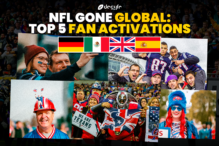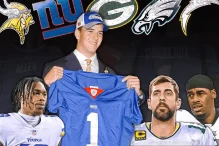

“Offense wins games, defense wins championships” – a phrase infamous around the NFL that was personified by Bill Belichick and his success with the New England Patriots. However, in recent years, we have seen a greater emphasis on innovative strategies and game plans offensively – resulting in a notable transition from defensive-minded head coaches to their more offensive counterparts. As we delve into this recent evolution, its impact on the hiring process for NFL head coaches becomes increasingly clear.
Just 10 years ago, a defensive-minded head coach was considered the optimum strategy for success, with former defensive coordinator Bill Belichick viewed as the template across the league. However, with the aforementioned shift as well as a sharp decline post-Brady, Belichick now finds himself without a job for the first time since 2000.
But just how dramatic has this coaching shift been?
Between the 2013 and 2017 seasons, 10 head coaches reached the Super Bowl – and of those, only two were offensive-minded, compared to eight that were defensive-minded. From 2018 onwards, however, 11 out of 12 head coaches to make the Super Bowl have been offensive-minded – a staggering 72% increase. The turning point? 2018 – the same year Sean McVay became the youngest head coach ever to reach a Super Bowl – thanks in large part to his prioritisation of offensive creativity.
Following McVay’s success, owners around the NFL have been desperate to unearth the next great offensive mind – resulting in promising offensive coordinators quickly attaining head coaching roles. In fact, before Brian Callahan was hired as the Tennessee Titans’ new head coach, he was one of only three offensive coordinators to have held the position for more than three seasons. Over the last few years, this has resulted in outstanding defensive coordinators – often with prior head coaching experience – disregarded in favour of an offensive mind, despite the offensive-minded coach usually being less seasoned. This is further supported by four of the last six Super Bowl winning teams boasting a defensive coordinator who had previously served as a head coach.
As of today, 18 of the NFL’s 31 head coaches (with Washington yet to fill the position) come from offensive backgrounds – while just 11 are defensive-minded and only John Harbaugh comes from a special teams background. Back in 2014, however, there was a considerably closer split – with 16 offensive coaches to 15 defensive as well as the aforementioned Harbaugh. Furthermore, 61% of all head coaches hired since February 2020 would be considered offensively-inclined – yet again demonstrating the premium placed on an offensive mind.
Despite Belichick’s notable decline, many would argue that the mediocre quarterback room in New England gave him no chance. However, if we turn our attention to another defensive-minded head coach in the same division – Buffalo Bills’ Sean McDermott – a similar limitation emerges, even with a superstar QB in Josh Allen. While boasting an impressive 73-41 regular season record, McDermott is 5-6 in the playoffs – with all six of those losses coming at the hands of an offensive-minded head coach.
It is important to note, however, that the NFL has made an active effort to protect offensive players in recent years – with penalties such as roughing the passer and illegal contact becoming considerably more frequent. This has consequently encouraged teams to become particularly pass-heavy – benefiting those head coaches who possess experience on the offensive side of the ball. Between 2013-2017 the league had just three quarterbacks to throw for over 5000 yards. Since 2018, however, that figure has doubled – with a staggering six QBs reaching the milestone.
With a hugely increased number of ‘pro-ready’ quarterbacks entering the NFL on a yearly basis, teams have shifted their focus to building around a young signal-caller whilst they’re still on a rookie contract. As a result, an offensive-minded head coach who can take a QB under their wing and maximise the QB’s development has become somewhat of a necessity – particularly when quarterback is widely regarded as the most challenging position in all of sports.
Over the years, we have seen countless promising college quarterbacks fail to change the fortunes of the organisation that drafted them and subsequently adopt the “bust” title. More recently – Mitch Trubisky, Josh Rosen and Zach Wilson. Despite their individual struggles, however, there was a common denominator between all three – the defensive-minded head coach.
https://decyfrsport.com/the-rise-of-the-offensive-mind/
Copied!





















































































































